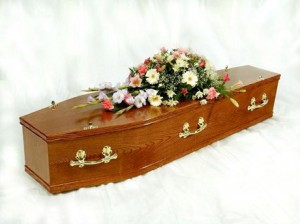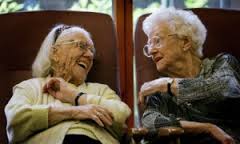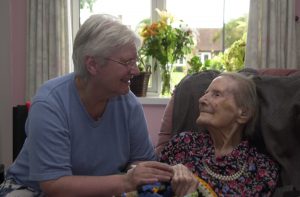
The Office of National Statistics recent figures showed the biggest annual rise in elderly deaths for almost fifty years – a 5.4% increase, equating to 27,000 deaths. For two years now Age UK has been warning that up to a million older people are facing ‘catastrophe’ because they cannot obtain funding for care. (It was reported in this blog last April, under the heading, ‘Canary in the Coal Mine.’) Now it seems that catastrophe has claimed thousands, especially older women. More older people died last year than any year since 2003, topping a trend that began in 2011 according to Public Health England (PHE). Year on year the ‘extra deaths’ amounted to 528,340.
Strong and flashing warning lights
Advisors to PHE have warned of a “strong and flashing” warning light, and said the elderly were now bearing the brunt of a growing crisis in the NHS and cuts to social care, with women suffering the most. Even after taking other factors into consideration, the current trend is the worst since World War Two. Oxford University’s Professor Danny Dorling is an advisor to PHE on older age life expectancy. He said: ‘When we look at 2015, we are not just looking at one bad year. We have seen excessive mortality – especially among women – since 2012. I suspect the largest factor here is cuts to social services – to meals on wheels, to visits to the elderly. We have seen these changes during a period when the health service is in crisis, while social care services have been cut back.’ [i]

Elderly abandoned by social care cuts
Another PHE advisor, Prof Harrison, director of public health in Blackburn and Darwen also pointed to a separate report by Public Health England showing a large number of local authorities reporting a fall in life expectancy at age 85 in 2014. He said the findings are unlikely to be fully explained by winter infections or a rise in the elderly population: reductions in local authority social care budgets in England have particularly affected preventative care services that would normally provide daily one-to-one contact for elderly people. Cuts to meals on wheels services, for example, could mean more elderly people go through entire days without seeing anyone else, and if they are ill this would mean they deteriorate without anyone noticing, he says. He adds: ‘One of the things this data might be telling us is that that it is just not possible for the health and social care system to contain costs, improve quality, reduce inequality and improve outcomes within such a rapidly diminishing resource envelope.’[ii]
In other words, vulnerable older people are dying because they cannot obtain care – exactly what Age UK predicted. Will we hear questions in Parliament? There’s been no sign of it so far. But there are signs that Christians are concerned by it, and churches are reaching out to the elderly in their communities more and more. At a conference in Llanelli last week some church leaders said, ‘The government doesn’t know what it’s doing [about elderly care]. Churches are at the heart of the communities – we can be making a difference.’ Something to pray about. Also, check on our website to see if there are any training days or conferences coming up near you in the next few weeks.
[i] http://www.telegraph.co.uk/news/health/12158930/Biggest-annual-rise-in-deaths-for-almost-fifty-years-prompts-warnings-of-crisis-in-elderly-care.html
















Pingback: Impoverish the old to help the young - Pilgrim's Friend Society
Its sad that our elderly are sometimes neglected. The fact that everyone will get old (or die young) should make everyone more concious of these important people in our society. Thanks to pilgrims friends society and other similar groups for helping the elderly. Groups like yours that provide care for the elderly whether in terms of counselling, health aids, safety gadgets and other things needed in case they fall or have accidents or encounter any health challenges should be supported. Thanks again